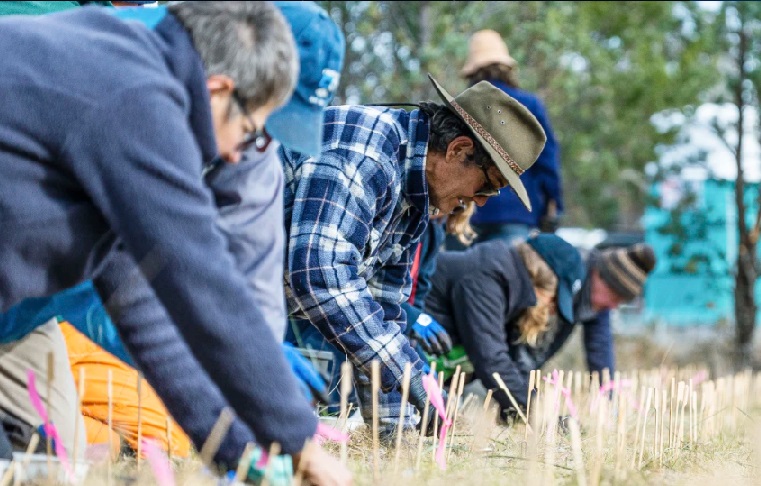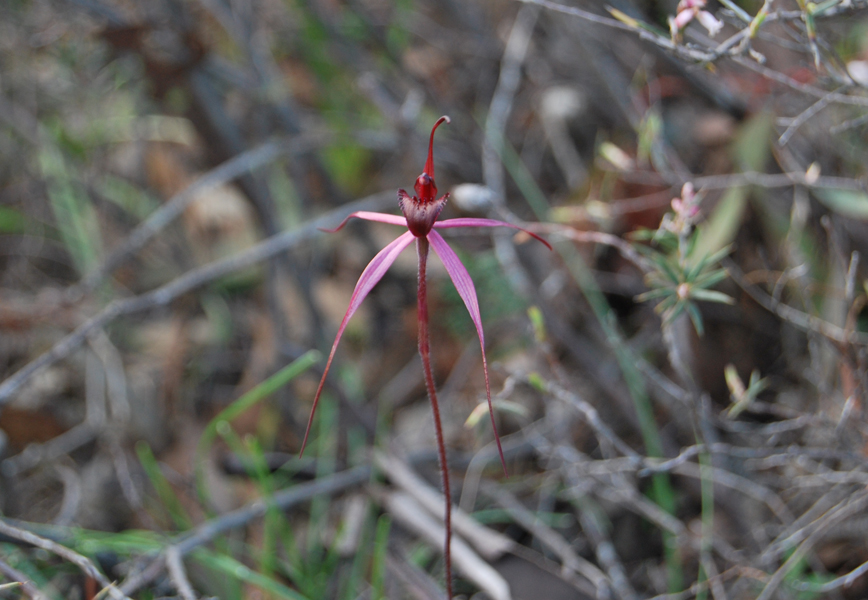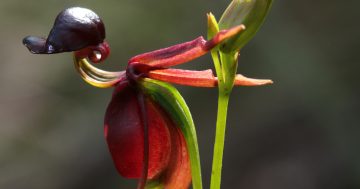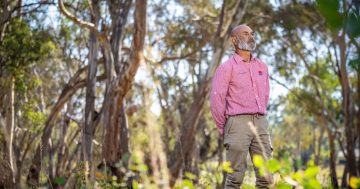
The orchids were propagated by the Royal Botanic Gardens Victoria and planted with the help of about 40 highly skilled and passionate volunteers, mainly from the Australasian Native Orchid Society. Photo: Alex Pike, NSW DPIE.
A species of plant one would be hard-pressed to imagine would grow in the rough-and-tumble conditions that characterise the Australian bush is the elegant and dainty orchid.
But would you believe right now the largest orchid translocation project ever conducted in Australia is underway, with more than 6000 native orchids being planted around the NSW Riverina and Albury to save the species from extinction?
NSW Environment Minister James Griffin said through the NSW Government’s Wild Orchids Project, three endangered orchid species had been brought back from the brink of extinction.
“This enormous translocation project follows years of surveys and research, and now culminates with a patchwork of native orchids planted in their native habitat across the Riverina landscape,” Mr Griffin said.

The Crimson Spider Orchid population on private property near Bethungra, between Cootamundra and Junee, comprises a few hundred plants. Other occurrences of the orchid in NSW can be found in Burrinjuck Nature Reserve and Nail Can Hill Crown Reserve near Albury. Photo: John Briggs, NSW OEH.
He said the NSW Government’s Saving our Species program found there were fewer than 2000 Sand-hill Spider Orchids, 1300 Oaklands Diuris and 650 crimson spider orchids left in the wild, meaning those species were at risk.
“This project gives us enormous hope for the survival of these rare and beautiful species because their populations have been boosted with 6000 additional healthy plants,” Mr Griffin said.
He said the project was a fantastic example of the great conservation outcomes that could be achieved in partnerships between government agencies, volunteer conservationists, private landholders and expert scientists.
The Crimson Spider Orchid, Sand-hill Spider Orchid and Oaklands diuris have been planted across public and private land on specially selected sites that have suitable soil conditions, pollinators and vegetation types to encourage growth.
The orchids were propagated by the Royal Botanic Gardens Victoria and planted with the help of about 40 highly skilled and passionate volunteers, mainly from the Australasian Native Orchid Society.
Funded with $1.4 million from the NSW Environmental Trust and Saving our Species program, the Wild Orchids Project is a collaboration between the Department of Planning and Environment, the National Parks and Wildlife Service, Local Land Services, Royal Botanic Gardens Victoria, the Australian Network for Plant Conservation, Trade & Investment Crown Lands and Forestry Corporation of NSW.
State Member for Albury Justin Clancy said this was a true community effort combining the best scientific research with local knowledge.
“I’d like to thank the enormous efforts of the highly skilled and passionate volunteers from the Australasian Native Orchid Society who have worked hard to plant the orchids across the Riverina region,” Mr Clancy said.
“Native orchids have been planted across six different sites that provide the best habitat for the species, including grasslands, woodland and forest.
“After years of research, this project brings together both scientific research and local knowledge to give these orchid populations the best chance of survival.”
For more information on the Saving our Species Program, including projects to secure NSW’s native orchid populations, visit Saving our Species program.








